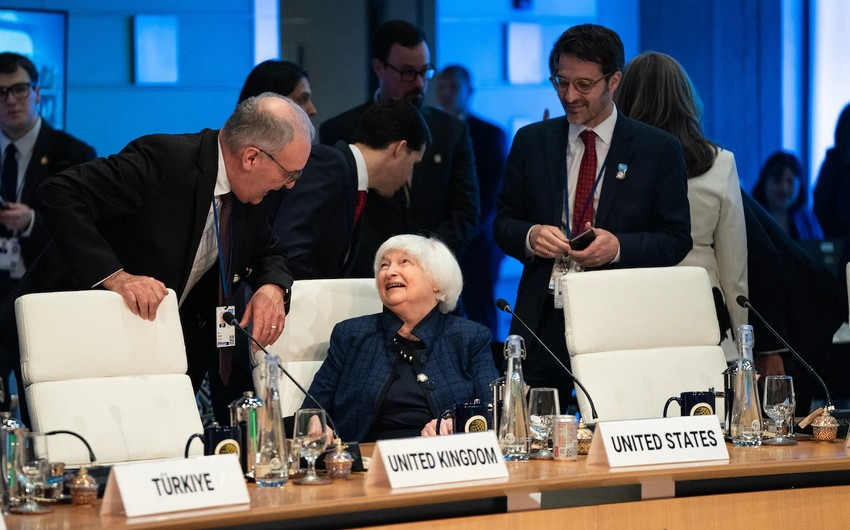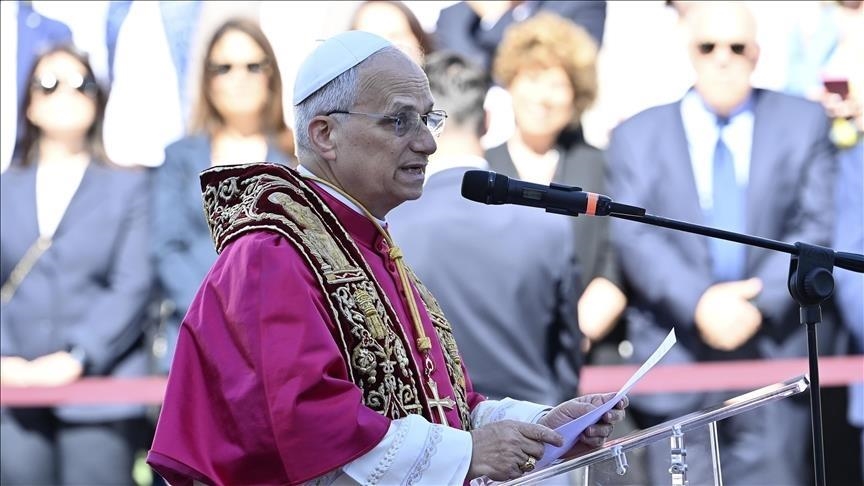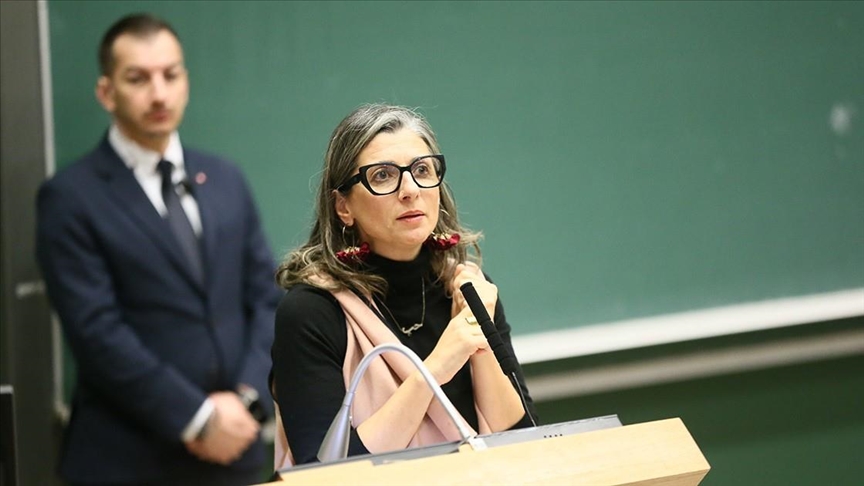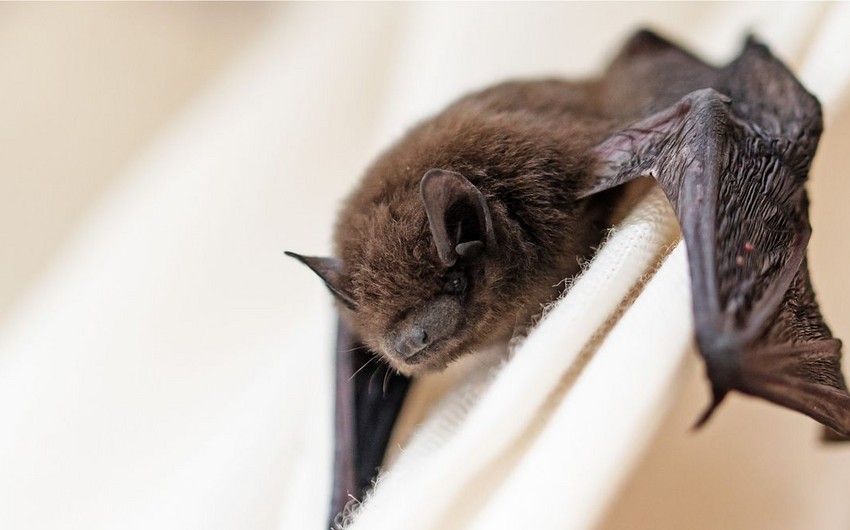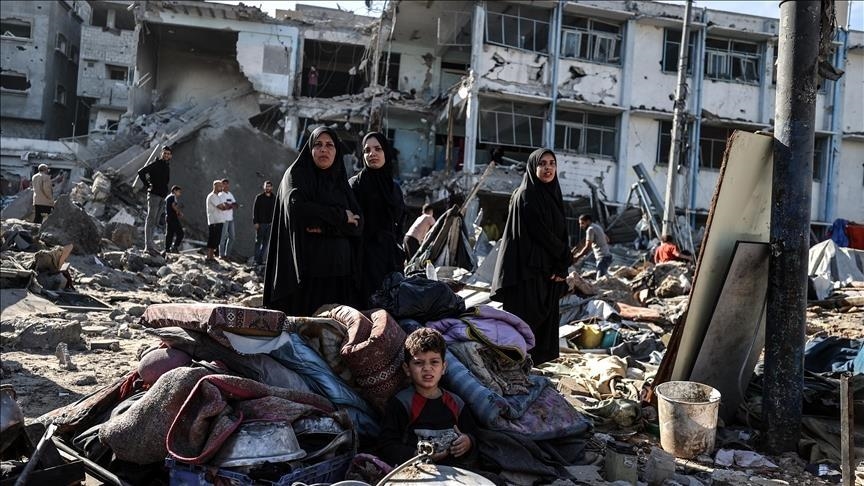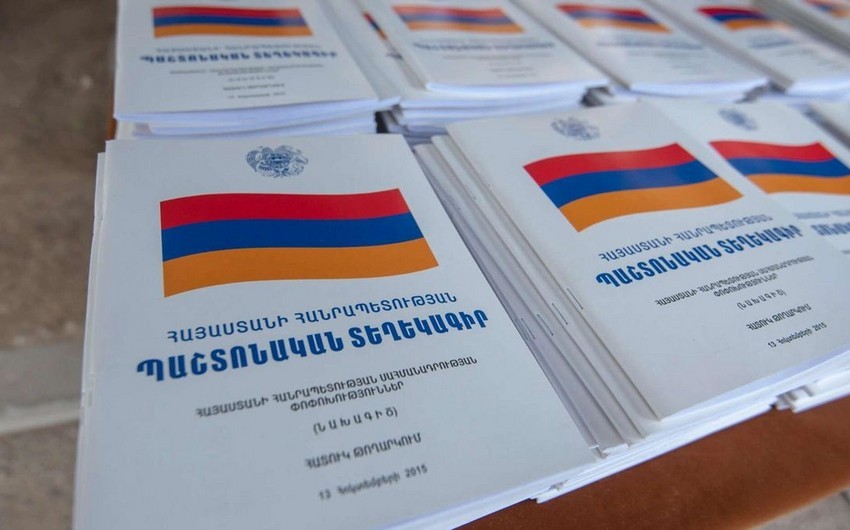The House on Saturday approved $61 billion in aid to Ukraine, ending six months of squabbling over continued US funding of the war against Russia.
But the diplomatic battle over how to pay the rest of Ukraine’s bills is only getting started.
At the annual spring meetings of the International Monetary Fund and World Bank in Washington this past week, US officials pushed reluctant Europeans to use some of the $280 billion in Russian central bank reserves that the allies froze in the war’s opening hours, Ednews informs via the Washington Post.
Over the past few months, diplomats have considered various proposals, including seizing the assets and transferring them to Kyiv, or using profits from the Russian investments to back a loan or bond offering. A final decision on proposals to repurpose the Russian assets awaits a June summit meeting of President Biden and other Group of Seven leaders in Italy.
“They’ve had the arguments for a long time. It’s now a question of can you get it done?” said Clay Lowery, executive vice president of the Institute of International Finance and a former Treasury official.
The glacial pace of decision-making highlights an uncomfortable reality for Kyiv: Despite this week’s apparent breakthrough in Congress, Ukraine faces recurring battles to win financial help. The current bill for damages and reconstruction is $486 billion and rising, according to a joint estimate by the government, the World Bank and the European Commission. And its battered economy remains dependent on international support.
Events are moving more quickly on the battlefield, where the Kremlin has been grinding out gains. Russian forces in recent days made “relatively significant tactical advances” outside of Avdiivka in eastern Ukraine, according to the Institute for the Study of War, a nonprofit research group.
European officials have balked at confiscating the Russian assets, fearing it could breach international law, discourage investors from trusting the euro and invite Russian retaliation.
Christine Lagarde, head of the European Central Bank, said last week that proposals to tap the frozen Russian assets for Ukraine’s benefit risk “breaking the international legal order that you want to protect.”
European officials also bristle at American insistence on what they see as a risky course of action when they hold the vast majority of the assets and any Russian retaliation will probably fall on Europe, not the United States.
As of September, the frozen Russian assets total $280 billion, “the majority of which is held in the European Union,” according to the G-7 task force monitoring the funds.
About $210 billion of that amount is held by Euroclear, a Belgian financial services company. Only around $5 billion is believed to be in the United States.
At the IMF and World Bank meetings, Treasury Secretary Janet L. Yellen met with her European counterparts in hopes of hammering out a compromise.
French Finance Minister Bruno Le Maire told reporters Wednesday that officials were discussing the European Commission’s March proposal to transfer to Ukraine about 3 billion to 5 billion euros annually. That sum, representing interest earned on the immobilized assets, could narrow Kyiv’s budget deficit or help it acquire additional military hardware.
Amid Washington’s protracted debate, Ukraine has run short of shells, bullets and air defense systems. But the modest sums being discussed, measured against Ukraine’s daunting needs, have left some observers skeptical.
“That is not going to change the battlefield or the fate of the Ukrainian economy,” said Douglas Rediker, chairman of International Capital Strategies, a financial advisory firm.
European finance ministers also fear that confiscating the Russian central bank assets could trigger a flight of global capital from the continent, according to Eswar Prasad, a Cornell University professor who served as chief of the financial studies division at the IMF.
But Prasad defended the measure as an important step if it leads to additional transfers of Russian revenue to Ukraine over time.
“If they can find a sensible way to start using Russian resources to transfer money to Ukraine, even if modest amounts, the symbolic significance cannot be overstated,” Prasad said.
Even if European reluctance can be overcome, the details of utilizing Russian funds are vexing. The Belgian prime minister last month floated the idea of raising money for Ukraine by issuing bonds that would pay investors interest with profits from the Russian assets. The United States has pushed the idea of having the G-7 nations join to arrange a syndicated loan, which would be backed by Ukraine’s reparation claims against Russia. Each proposal involves complex legal and financial questions.
All involved agree that more needs to be done for Ukraine, but there is no consensus on specifics, one senior Treasury official said, speaking on the condition of anonymity to relay confidential discussions.
“We’re thinking of the Russian sovereign assets as a sustainable medium-to-long-term solution for this funding problem,” the Treasury official said.
Assuming House approval of the Ukraine aid bill, the Senate is expected to follow suit soon, leading to the president signing legislation granting the embattled country much-needed financial assistance.
“You should not take the passage of this bill as evidence that the US obligations to Ukraine are over. Ukraine has no certainty even for 2025,” said Hlib Vyshlinsky, executive director of the Center for Economic Strategy, a Ukrainian think tank. “It will need further support to prevail in this war.”
The House also is expected to pass the Rebuilding Economic Prosperity and Opportunity for Ukrainians Act (REPO), which would give the president authority to seize any Russian assets under US jurisdiction.
“There will be an ongoing need for funding. If every version of that fight is as hard as this one has been, the outlook is challenging,” said Tobin Marcus, an analyst with Wolfe Research and an aide to Biden during his vice presidency.

